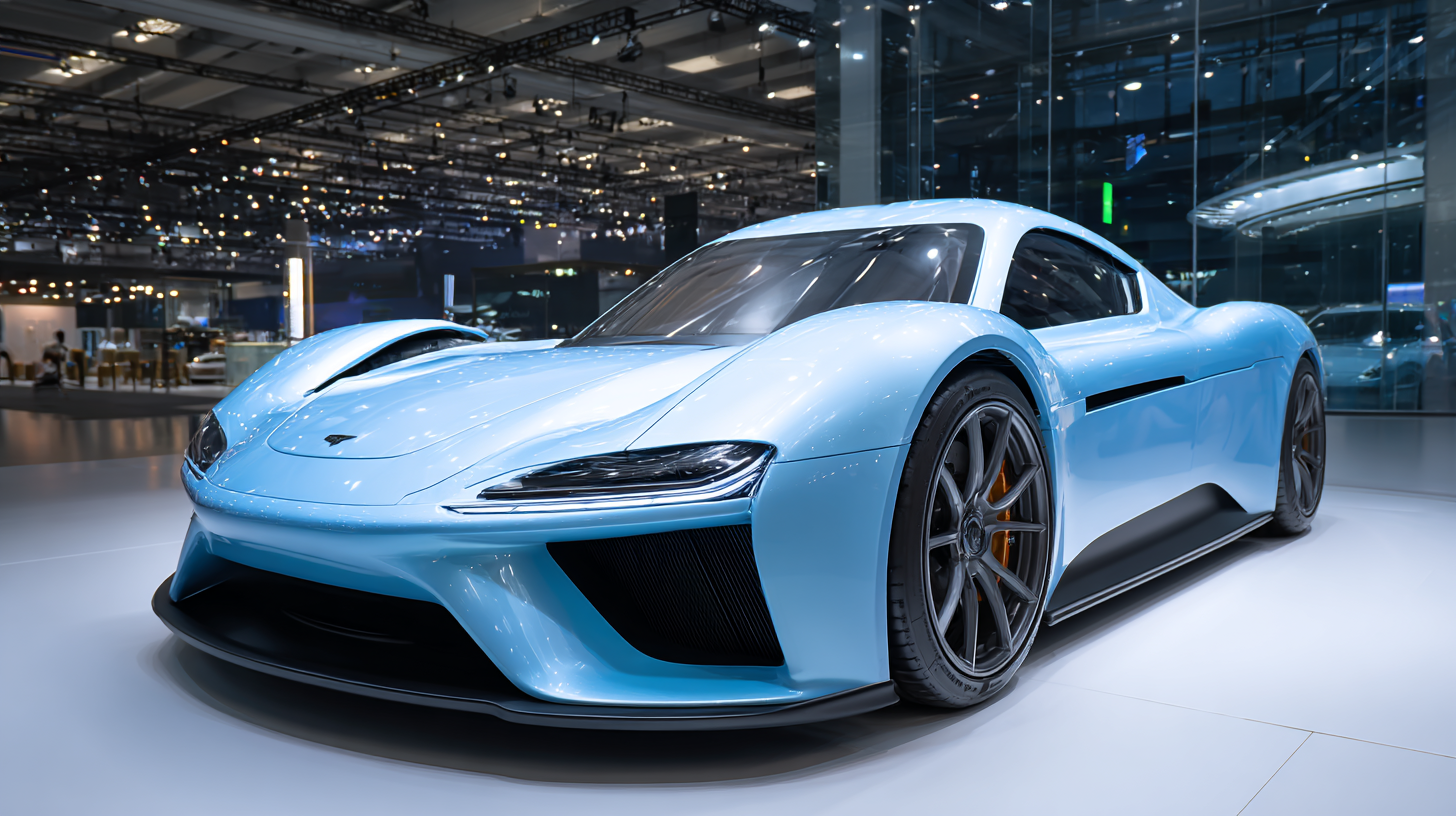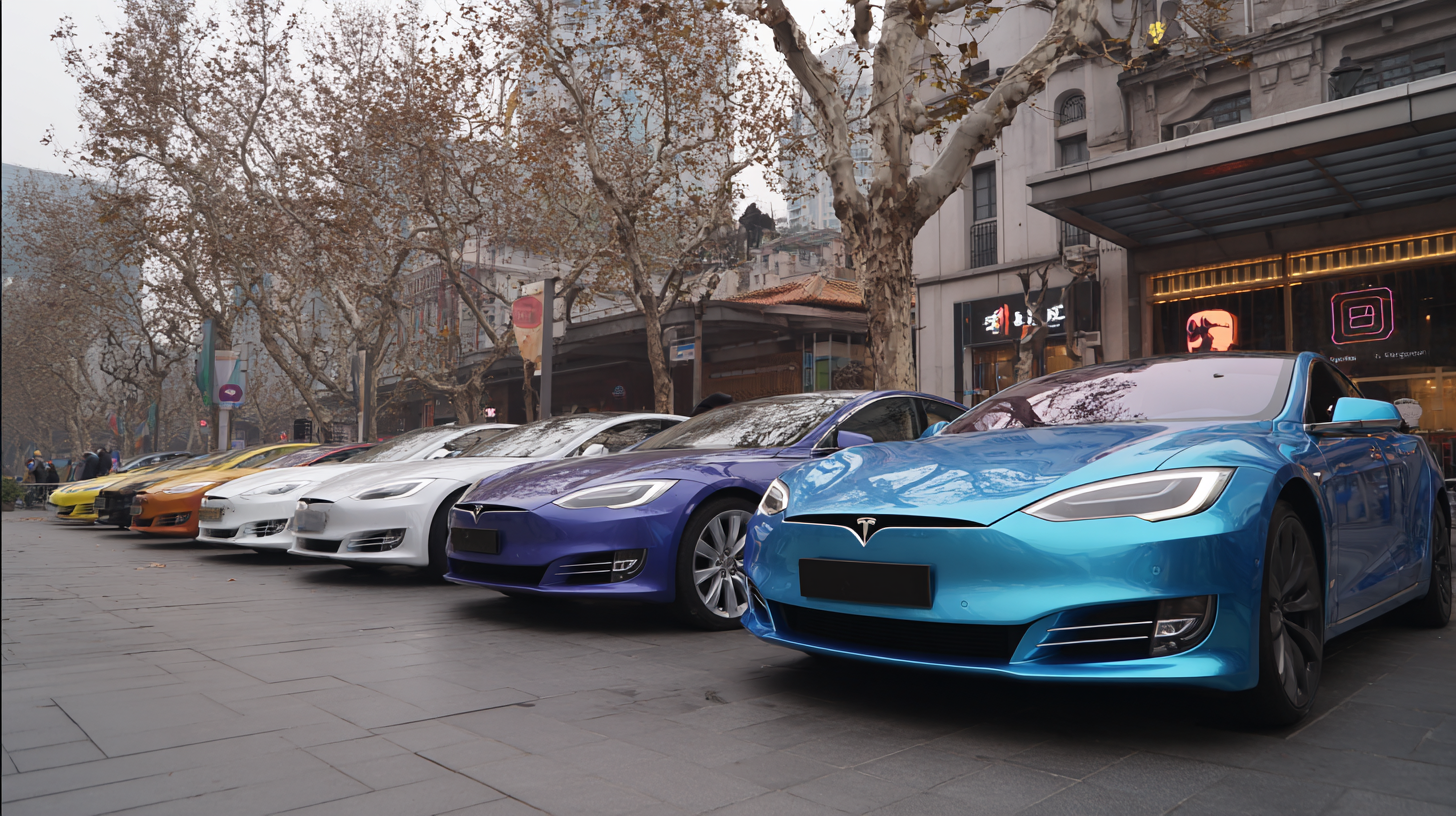Leave Your Message
In recent years, the global electric car industry has experienced unprecedented growth, with reports indicating that the electric vehicle market is expected to reach a staggering 26.4 million units sold annually by 2030. This surge is largely driven by innovations and advancements from Chinese manufacturers, who are increasingly dominating the market with high-quality electric cars.

According to a report by the International Energy Agency, China accounted for over 50% of the world's electric car sales in 2021, a trend that shows no signs of slowing down. As leading companies such as BYD and NIO expand their product lines and enter new markets, they are setting new standards in technology, affordability, and sustainability.
With their ability to produce electric vehicles at competitive prices while maintaining superior performance, Chinese electric cars are not just conquering domestic markets but are making significant inroads internationally, reshaping the landscape of the automotive industry globally.
The rise of Chinese electric cars on the global stage has been nothing short of remarkable. Companies like BYD, NIO, and Xpeng have positioned themselves as major players, offering innovative features and competitive pricing that challenge established automakers. Their success can be attributed to a combination of advanced technology, strategic partnerships, and a deep understanding of consumer preferences. In the past few years, China has invested heavily in research and development, enabling its automakers to produce vehicles that not only meet international standards but often exceed them in terms of performance and sustainability.
Moreover, the Chinese government’s support for the electric vehicle (EV) sector has created a fertile environment for growth. Subsidies, tax incentives, and a robust charging infrastructure have accelerated adoption both domestically and internationally. As electric cars become increasingly popular, Chinese brands are capitalizing on their reputation for affordability without compromising quality. Their emergence in markets across Europe, North America, and Asia signifies a shift in the automotive industry, as consumers become more open to alternatives that challenge the traditional legacy brands. As we see more electric models hitting the roads worldwide, it’s clear that Chinese automakers are not just participants in the market, but leaders driving the EV revolution.
This chart illustrates the increasing global market share of quality electric cars from China from 2020 to 2023. The steady growth highlights China's significant impact on the electric vehicle industry worldwide.
Chinese electric vehicles (EVs) have rapidly gained traction in the global market, driven by several key factors. First and foremost, the aggressive investment in technology and infrastructure has positioned China as a leader in the EV industry. The country’s commitment to innovation has fostered the development of advanced battery technologies, which enhance the performance and range of electric cars. This technological edge not only appeals to consumers but also boosts manufacturers' competitiveness on the international stage.
Moreover, the affordability of Chinese electric vehicles plays a significant role in their global popularity. With competitive pricing, these EVs offer a cost-effective alternative to traditional internal combustion engine vehicles and even other electric models. This makes them particularly attractive in emerging markets, where budget constraints are paramount. Additionally, the Chinese government’s subsidies and incentives for both manufacturers and consumers further lower the barrier to entry, paving the way for increased adoption of electric vehicles. As a result, the combination of technological advancement and affordability is propelling Chinese electric cars into the hearts of consumers worldwide.

China's electric vehicle (EV) market has surged to the forefront of the global automotive industry, driven by cutting-edge technologies and innovative design. Chinese manufacturers have adopted advanced battery productions that allow for longer driving ranges while reducing costs effectively. Moreover, companies such as BYD and NIO are not just producing vehicles but are also pioneering smart technologies integrated into their cars, such as autonomous driving capabilities and enhanced connectivity features. This focus on innovation has established Chinese EVs as serious contenders in international markets.
When considering an electric car, it's essential to pay attention to factors such as battery efficiency and charging infrastructure. A higher battery capacity often translates to longer trips without recharging, making daily commutes more convenient. Also, it's wise to research the availability of charging stations in your area, as this can significantly impact your driving experience.
Additionally, look for models that incorporate the latest safety and entertainment technologies. Many Chinese EV manufacturers are pushing boundaries by featuring AI-driven systems that enhance both driver and passenger experiences. By staying informed about these advancements, potential buyers can make smarter choices when selecting their next electric vehicle.
The electric vehicle (EV) sector is undergoing a transformative shift, with China leading the charge in international markets. China's strategic expansion in this field is evidenced by significant investments and partnerships aimed at enhancing its global footprint. Notably, the latest reports highlight the competitive dynamics as Chinese companies adapt their technology and market strategies to capture overseas consumers. This transformation is imperative, as countries like Saudi Arabia are implementing policies to diversify their economies, further opening the market for electric vehicles.

Tips for consumers: When considering an electric vehicle, assess the availability of charging infrastructure in your area. Being aware of the local support, especially in developing markets, can greatly enhance the ownership experience. Additionally, keep an eye on the latest models being introduced globally, as many Chinese brands are rapidly innovating to meet international standards and preferences.
Moreover, the trend of increasing collaboration between Chinese manufacturers and foreign partners signifies a collective move towards a more sustainable automotive ecosystem. This not only elevates the quality and technology of EVs but also contributes to a more competitive landscape. As companies continue to expand their offerings across borders, potential buyers are encouraged to stay informed about new releases and advancements that can shape their choices in the evolving electric vehicle market.
In recent years, Chinese electric cars have gained significant traction in the global market, driven by a blend of innovation, affordability, and consumer preferences. According to a report by the International Energy Agency (IEA), electric vehicle (EV) sales in China surged by over 80% in 2021, making up almost 50% of the world’s total EV sales. This trend highlights how the combination of government subsidies, improved charging infrastructure, and a deepening commitment to sustainability has incentivized Chinese consumers, while also appealing to international buyers seeking cost-effective alternatives to traditional automakers.
Global consumers are increasingly drawn to Chinese electric vehicles due to their advanced technology and competitive pricing. A recent study by Frost & Sullivan revealed that the average price of electric cars in China is 30% lower than in the U.S. This affordability, paired with high-performance features such as long battery life and smart technology integration, has garnered the attention of buyers worldwide. Furthermore, brands like BYD and NIO are positioning themselves as viable alternatives to established players, tapping into consumer desire for modern, eco-friendly transportation that doesn’t compromise on quality or performance. As this trend continues, Chinese electric cars are set to solidify their presence in the global automotive landscape.
